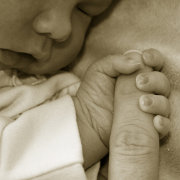Sleep Tips
Sleep is worth far more before than after midnight. Two hours’ good sleep before twelve o’clock is worth more than four hours after twelve o’clock…
7MR 224
"Sleep hygiene" originally referred to the cleanliness of the sleeping environment, especially with regard to bedbugs. In the 19th Century many beds even had the posts sit in pots of oil to prevent insects from crawling up into the bed. Mattresses were manually pulled tight with draw-strings, to provide firmness. Cleaning floors and rugs was harder in those days before the invention of power vacuum cleaners. And contagious diseases were more prevalent. So "sleep hygiene" literally referred to how clean and hygienic the sleeping space was. In contemporary usage, sleep hygiene refers all the practices and habits that help you get restful sleep. This includes comfort of bedding, room temperature and light level, noise level, regular bedtimes, and how recently you ate and exercised before going to bed. Attention to sleep hygiene is the first thing to look to when people have trouble sleeping.
Experts recommend these to help you fall asleep, stay asleep and wake up feeling refreshed and ready to start a new day.
- Go to bed at the same time every night and get up at the same time every morning. Set and maintain a sleep schedule. Try to stick to it even on weekends and when life gets crazy. Failure to do so can lead to insomnia. “Sleeping in” on the weekends will make it harder to wake up on Monday morning because it resets your sleep cycle.
- Avoid drinking alcohol close to bedtime. While it may initially sedate you, alcohol keeps your brain in light sleep – you have trouble getting to the deep sleep and REM sleep phases and your sleep is less efficient. Arousals due to alcohol can cause sweating, headaches and intense dreaming.
- In the late afternoon and evening, avoid caffeinated drinks because they act as stimulants. Caffeine sources include some soft drinks, coffee, chocolate, non-herbal teas, some pain relievers and diet drugs. Caffeine can stay in your system up to 14 hours. It increases the number of nighttime awakenings and decreases total sleep time.
- Avoid nicotine in the evening. This includes both smoking and smoking withdrawal systems such as nicotine patches. Nicotine is a stimulant, like caffeine, so it pumps your heart up. Smokers often have trouble sleeping because the length of a good night’s sleep is more than their bodies want to go without a cigarette. They wake up early due to nicotine withdrawal.
- Wake up with the sun, or use very bright lights in the morning. Sunlight helps the body’s internal biological clock reset itself each day. Sleep experts recommend exposure to an hour of morning sunlight for people having problems falling asleep. This is also a great treatment for jet lag.
- Keep the bedroom quiet and dark and at a comfortable temperature. Extreme temperatures may disrupt sleep or prevent you from falling asleep. Make sure you have a good mattress and pillow.
- Try to exercise 20 to 30 minutes a day but not right before bedtime. For maximum benefit, exercise at least three hours before going to bed, especially if you are the type of person who becomes more alert with exercise.
- Develop a relaxing routine before bed. This may include a warm bath, light stretching, listening to soothing music, reading or other relaxing activities.
- Don’t eat a big, heavy meal right before bedtime.
- Don’t lie in bed awake. If you can’t fall asleep within 30 minutes, go to another room and do something restful until you feel tired. Don’t read in bed. If you want to read, get out of bed and sit in a chair.
- Don’t have a visible bedroom clock because “clock watching” will only help intensify the misery of insomnia. You can always turn the face of the clock away from you or put it in a drawer.
- Reserve your bed for sleeping (and sex). Keep the television, laptop, cell phone, food, etc. out of the bedroom.
- Don’t make bedtime the time to solve your problems. Make a to do list for the next day then try to clear your mind.
- Think about your napping policy. Naps can be great in helping some people improve performance. But for others, napping is an invitation to night-time insomnia. Figure out which category you are in. Don’t nap during the day if you have trouble sleeping at night. If you must, take a brief nap 10 to 15 minutes about eight hours after waking.
- Try not to drink fluids at least two hours before bedtime as a full bladder can interfere with sleep.
- If you need to get up during the night, do not expose yourself to bright light. Intense light can reset your internal clock and make it harder to get back to sleep.
- Avoid sleeping with your pet because their movements or your allergies can decrease the quality of your sleep.
- Know the side effects of your medications. Certain medications can either compound sleepiness or make falling asleep more difficult. Let your doctor know if you have sleep problems so they can do their best not to prescribe medications that worsen your sleep difficulties.
- If sleep problems persist, see your doctor. If you have trouble falling asleep night after night or if you always wake up feeling unrefreshed, you may have a sleep disorder that needs treatment.

